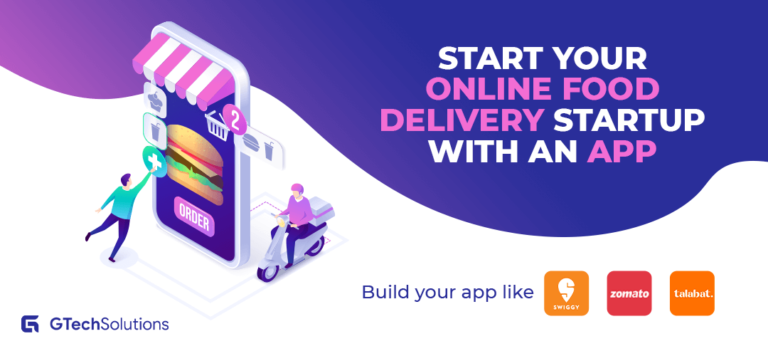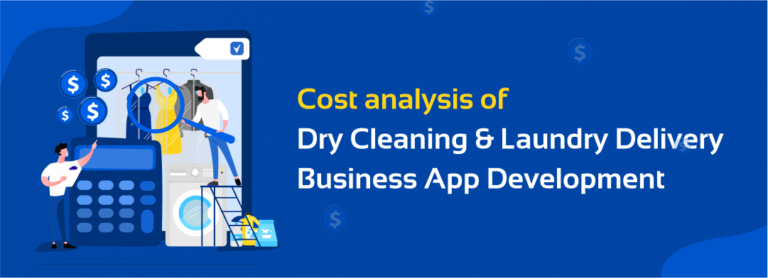Get A Fair Idea About The Cost To Build An Ecommerce App


Due to the advancement of science and technology, many industries are presently booming and as a result, many new jobs have been created in many industries. Hence, the working class population of the world, especially in developing countries like India, China, Brazil, etcetera has exploded. As people lead very hectic and fast-paced lives these days, they are not able to find the time to do their daily chores like shopping for groceries and other essential goods. Hence, people have resorted to using e-commerce apps like Amazon, Flipkart, Myntra, etcetera to buy groceries and other goods. The convenience, financial security, and reliability of e-commerce apps have made them very popular among the masses. E-commerce apps began to gain popularity and were changed into all category shopping apps around 2005. During 2005, Amazon’s revenue was a modest USD 12 billion. Since, then it and all other e-commerce apps have witnessed exponential growth in terms of downloads and sophistication. Amazon’s current revenue (as of 2022) stands at USD 11.65 trillion! Hence, this is a great time for you to be thinking about the cost of ecommerce app development. What are the must have features for modern day e-commerce apps and how much does it cost to build an e-commerce app? Kindly read on to find out. .
Table Of Contents
Ecommerce App Features
What Is The Cost To Build An Ecommerce App?
Ecommerce App Features
Modern day e-commerce apps must have the following advanced and convenient features to give their respective business owners an edge over their competitors and build a large user base.
A Swift And Simple User Registration Process
One of the main USPs of most of the mobile apps is ease of registration and use. People expect almost all mobile apps to be swift and simple to use. Your e-commerce app must follow suit and have a simple and straight forward registration process to bag the maximum possible downloads.
You must only ask essential details in your app registration process like your users’ name, mobile number, address, and email ids. If you ask too many irrelevant questions in your app’s registration process, your potential users will get frustrated and most probably will never download your e-commerce app.
You can also provide your users the option to login via their social media accounts like Facebook, Twitter, Pintrest, LinkedIn, etcetera to further simplify and hasten your e-commerce app’s registration process.
Easy App Navigation
Another major USP of most of the mobile apps these days is ease of navigation and use. Your users must be able to easily navigate through your e-commerce app and search for their desired products with ease.
This can be achieved by incorporating the ‘filter’ feature in your e-commerce app. By doing so, your users will be able to filter products listed on your e-commerce app via categories, brand names, and other specifications.
This feature will enable your app users to easily find what they’re looking for. You can also incorporate a search bar in your e-commerce app to further simplify and hasten the searching and buying process. Your app users can simply type the name of the product they’re looking for and have it listed on your e-commerce app.
The more simple and swift your e-commerce app is, the more downloads it’ll bag and the larger your user base and customer retention will be.
A Plethora Of Swift And Secure Online Payment Options
Gone are the days when people had to pay via cash for everything and had to have the exact change with them. In India especially, after the demonetization move took place in November 2016, people began to discover the accuracy, swiftness, and security of online payment methods like net banking, UPIs, etc.
Since then, online payment methods gained immense popularity and usage in India. Online payment methods have now become so popular in India that people expect them to be incorporated in apps wherever applicable.
Hence, your e-commerce app must have a plethora of swift and secure online payment options like net banking, UPIs, digital wallets, etcetera built into it to make a big appeal on your target audience and to bag the maximum possible downloads. After all, money is precious to everyone and must be transacted safely.
Push Notifications
Push notifications if used wisely will heighten your customer satisfaction, retention, and brand loyalty.
You can send automatic push notifications to your users regarding the new products listed on your e-commerce app, regarding your ongoing and upcoming discounts, wishes on their red lettered days, and any changes to your loyalty program.
Last but not least, notifications regarding order status updates are vital to keep your customers informed (KCI) and prevent anxiety for them.
Options To Give Reviews And Ratings
Getting feedback from your users, analyzing them, and implementing their sensible and valuable feedback is essential to improve your service quality and thrive in the e-commerce industry.
If your users post any queries after any purchase via in-app comments, you can get back to them via SMS, WhatsApp, email, or call and resolve their queries. This will heighten your customer satisfaction and retention which will give you immense benefits in the long run.
24/7 Customer Support
Most of the orders on e-commerce apps these days are prepaid and it’s only natural that people expect the products that they’ve paid for to be delivered on time and in perfect condition.
To ensure that all of your customers’ orders and refunds are delivered on time and impeccably, you need to have efficient and effective 24/7 customer support options built into your e-commerce app.
The customer support options can include call support, in-app chat support, email support, and live chat support on popular social media platforms. The more dedicated, efficient, and effective your customer support channels are, the more will be your customer satisfaction, customer retention, brand loyalty and popularity.
A Products Recommendation Feature
If your e-commerce app is built partly using Machine Learning (ML) algorithms, it can give buying suggestions to your app users based on their previous purchases (the app will get an idea of your users’ tastes and suggest products to them). According to a recent research conducted in the US, smart product recommendations have been proven to increase online sales by upto 15%.
Product recommendations can come under title’s like, “Hi Abijith (or any other customer’s name), here’s what we think you might like”, “Recommended products for you”, “People who bought item ‘A’ also bought items ‘X, Y, and Z’”, “Frequently bought together”, etcetera. Your app’s recommendation title has to be catchy to make your users take the desired action.
Augmented Reality (AR) Based Information And Recommendations
Your e-commerce app can have AR based features that enable it to access your users’ smartphones’ cameras to analyze any product image in front of it and tell your users if the product is a right fit for them or not.
This recommendation will be based on your users’ past purchases via your e-commerce app. This is quite an advanced and futuristic feature that even popular e-commerce apps like Amazon don’t have.
So, if you incorporate this AR based products recommendation feature in your e-commerce app, you’ll be introducing disruptive technology in the e-commerce industry and your e-commerce app will no doubt get millions of downloads.
What Is The Cost To Build An Ecommerce App?
Unfortunately or fortunately, there is no fixed cost to developing an e-commerce app. The cost to develop ecommerce app depends on a multitude of factors that are listed below.
The Number And Complexity Of App Features You Want
If you only want a basic e-commerce app with rudimentary features, it can be developed with a relatively small budget and app development team. On the contrary, if you want to develop a state-of-the-art e-commerce app with all the advanced and convenient features as stated in the previous sections, you’ll have to be prepared to spend a small fortune.
This is because developing an advanced e-commerce app with elaborate and complex features takes a lot of app development time, a large app development team, and a great deal of technical expertise. So, you must develop a e-commerce app that best suits your budget and business requirements.
The Mobile OS Platform For Which Your Developing A E-Commerce App
Apps for the Android and iOS mobile OS paltforms are coded in different programming languages namely Kotlin and Swift respectively. Both these programming languages have different levels of capabilities and ease of learning and implementation. Hence, naturally, you’ll be charged variedly depending on whether you’re developing an on-demand e-commerce app for Android, iOS, or both the platforms (hybrid apps).
Whether Or Not Your App Development Agency Provides App Maintenance Services
If your app development agency provides post launch app maintenance services and you subscribe for it then obviously you’ll be charged for it depending on the agency’s monthly rate and how many months of app maintenance you have subscribed for.
Subscribing for six months to one year of app maintenance service is an ideal choice. Generally speaking, cost of ecommerce app development ranges between USD 20,000 to USD 100,000 depending on the above mentioned factors.
What We Can Do For You
If you want to develop an official e-commerce app for your business or if you wish to be an aggregate sellor, we can certainly help you wiith your business ambitions. We have quite a few years of proven experience in the mobile app development domain.
Our skilled and seasoned mobile app developers are adept at developing native and hybrid apps. We will take your budget and business requirements into consideration and design you the most appropriate e-commerce app.
Our impressive app development portfolio and exhilarated client reviews are proof of our technical expertise and professionalism. Last but not least, we offer our sought after app development services at very reasonable costs. So, you have everything to gain and nothing to lose by getting in touch with us

The Author
Gopinath Murugaiyan
Managing Director




